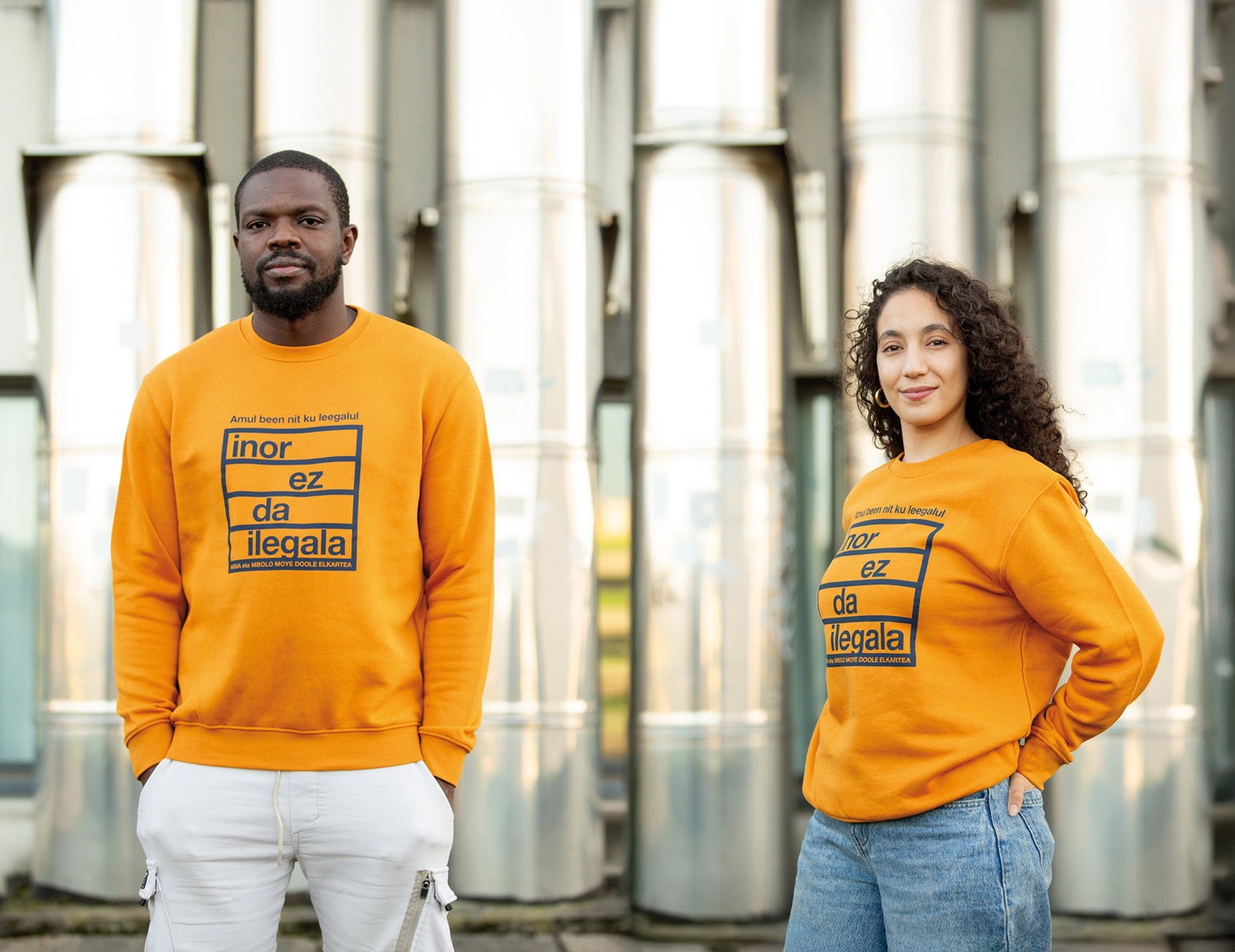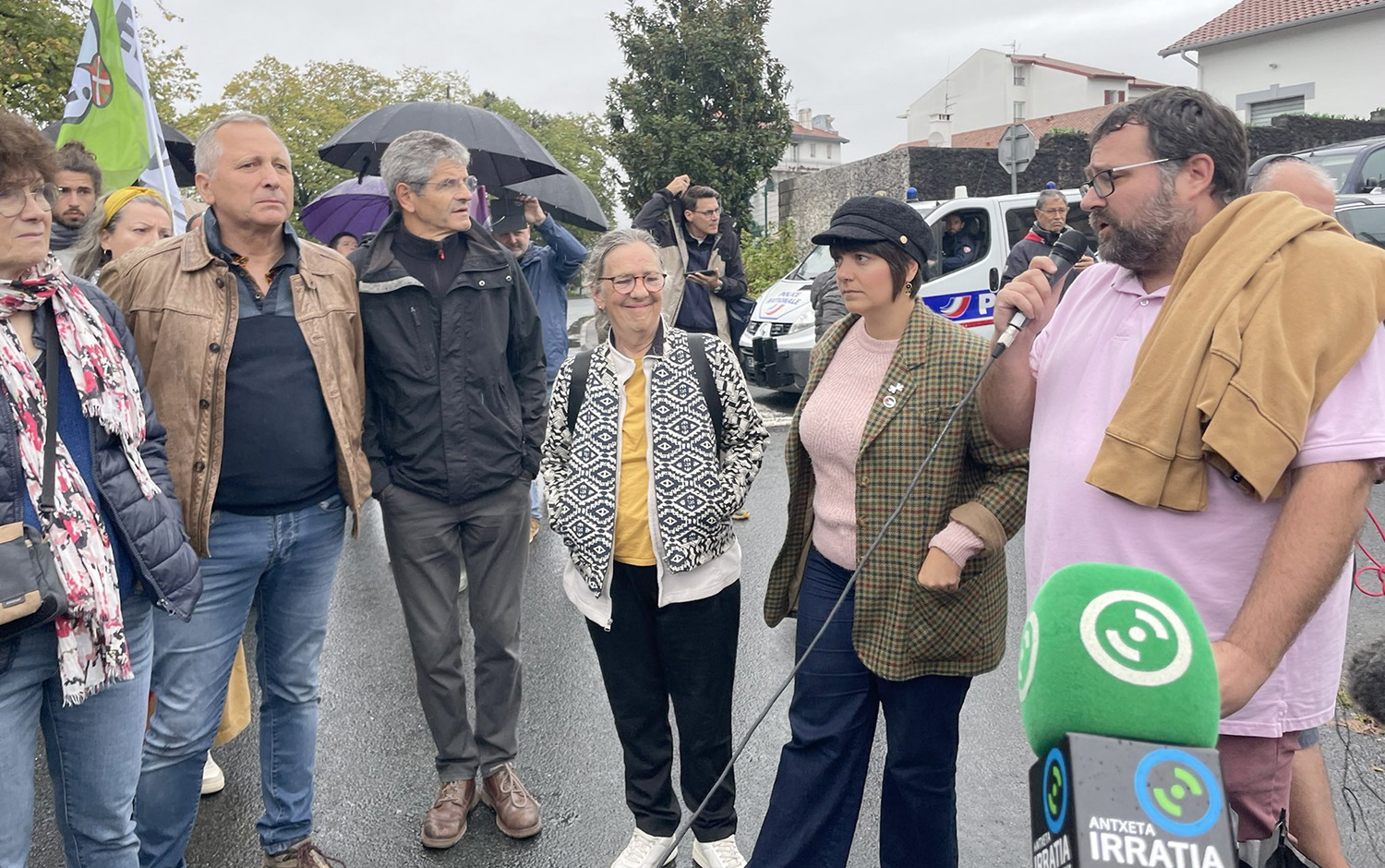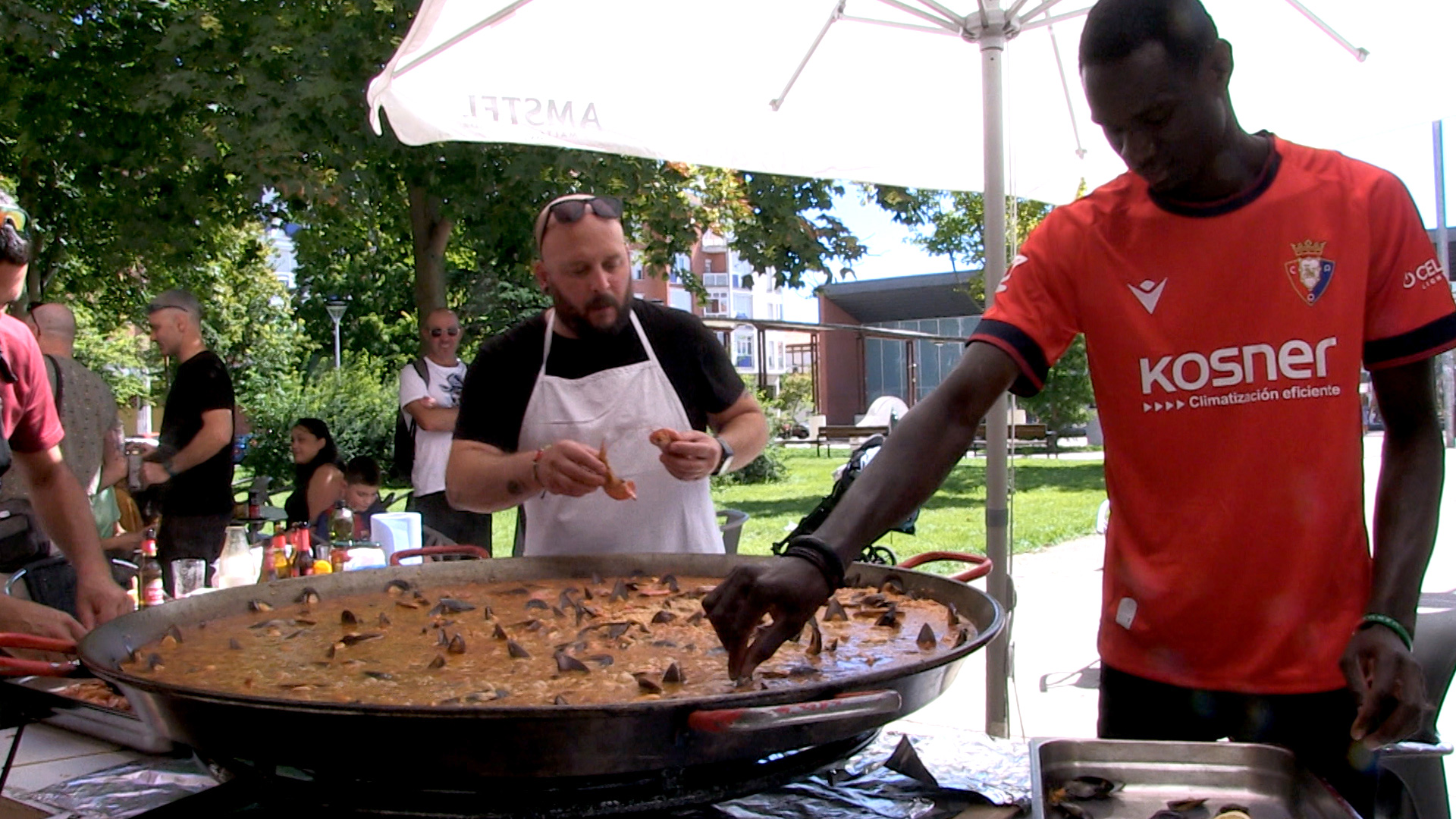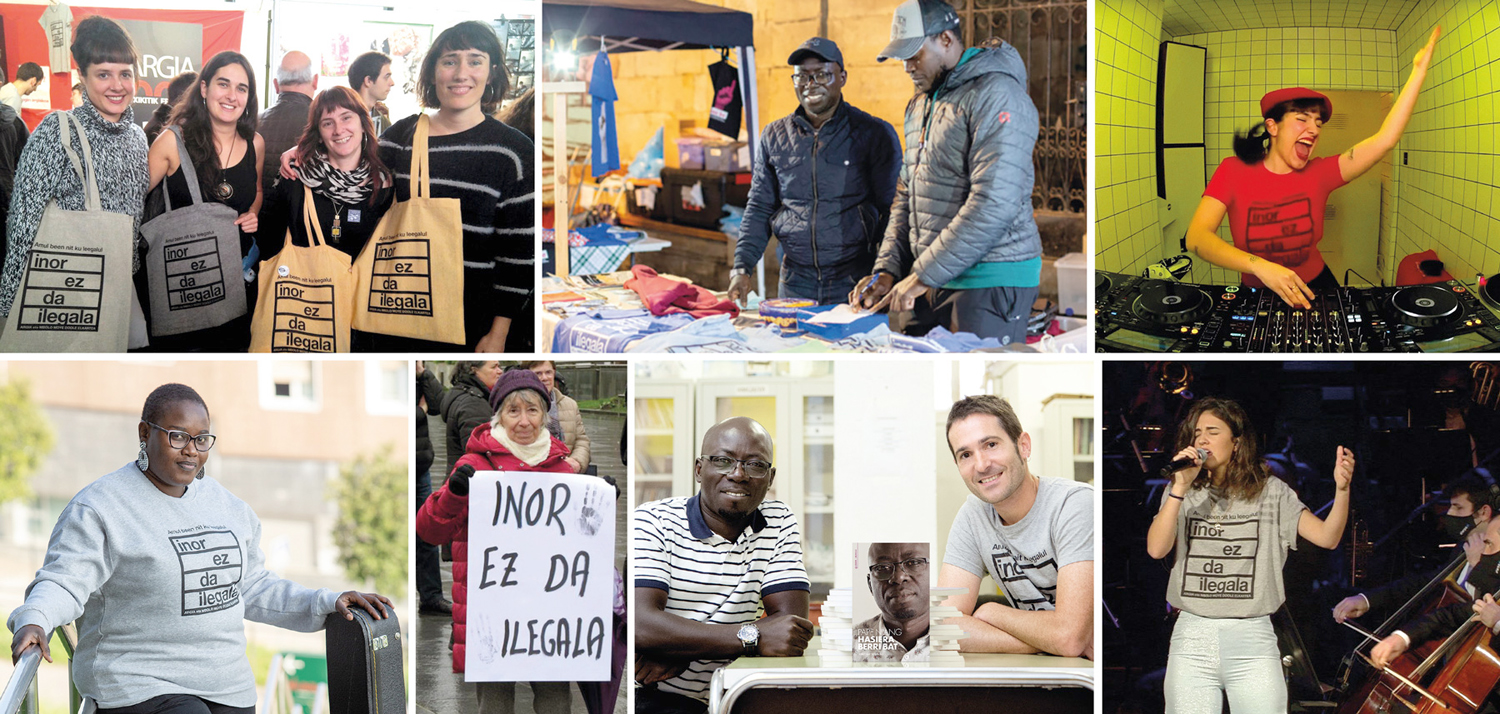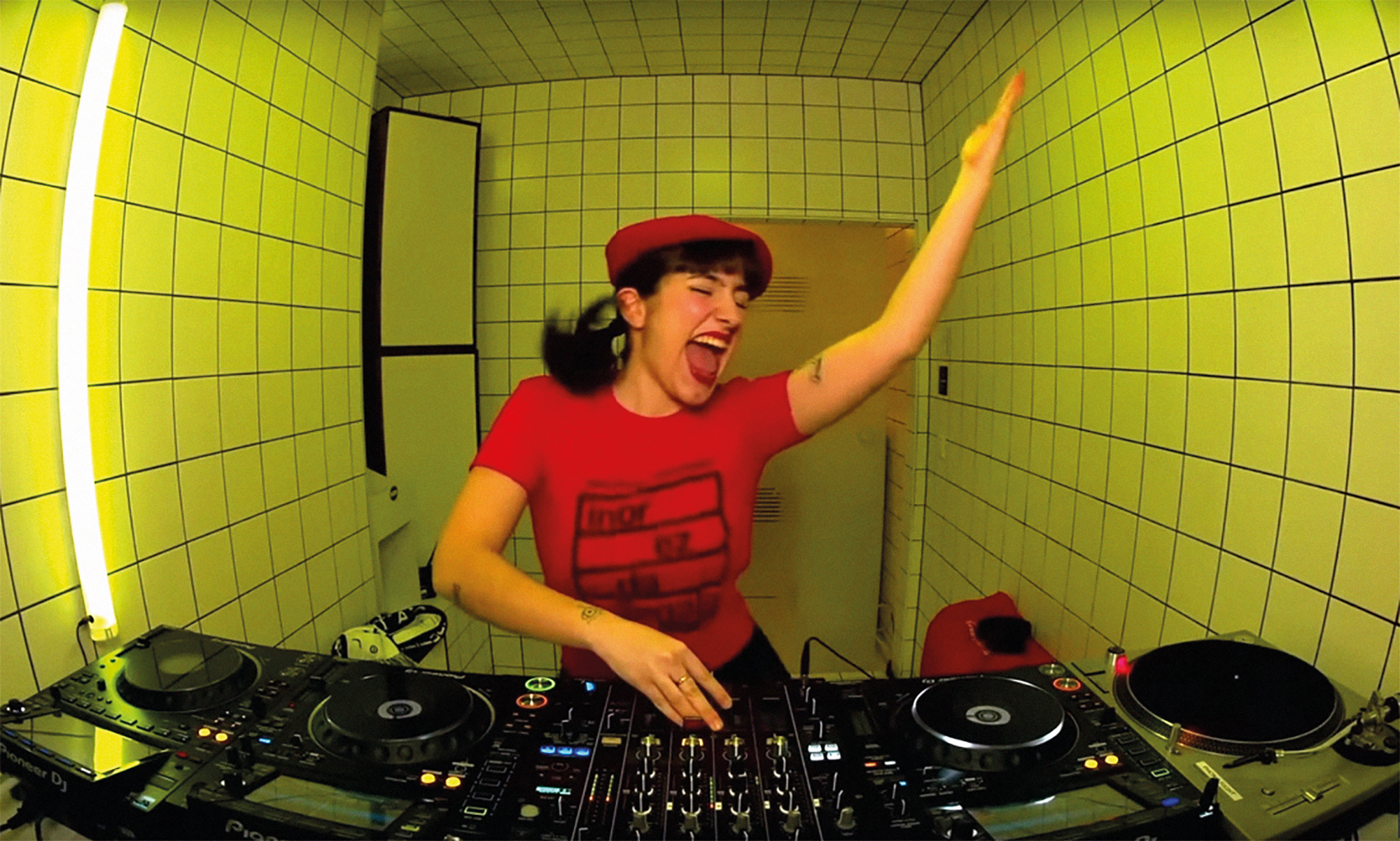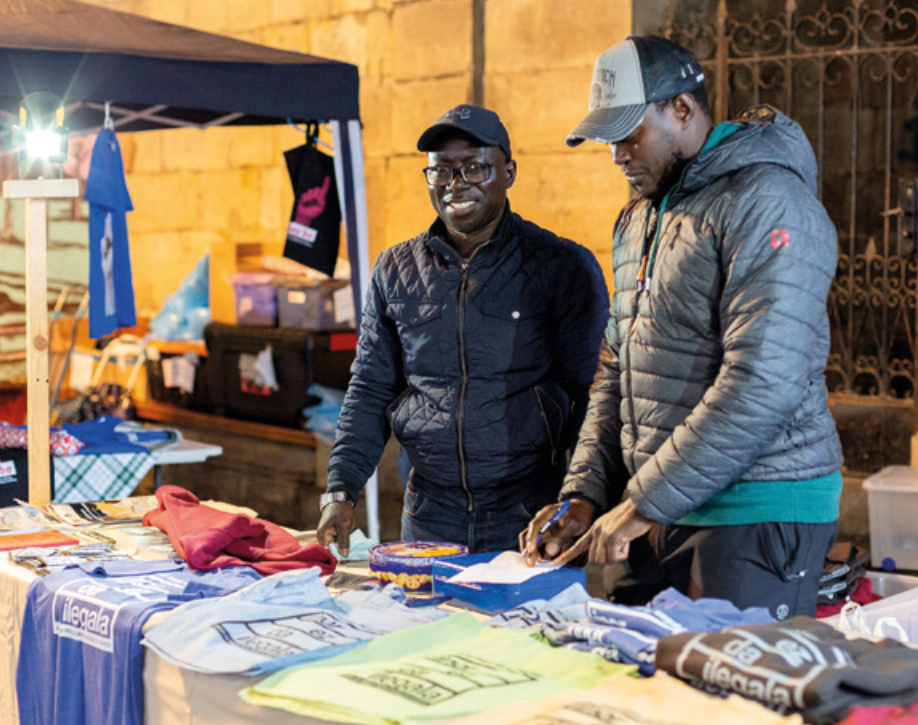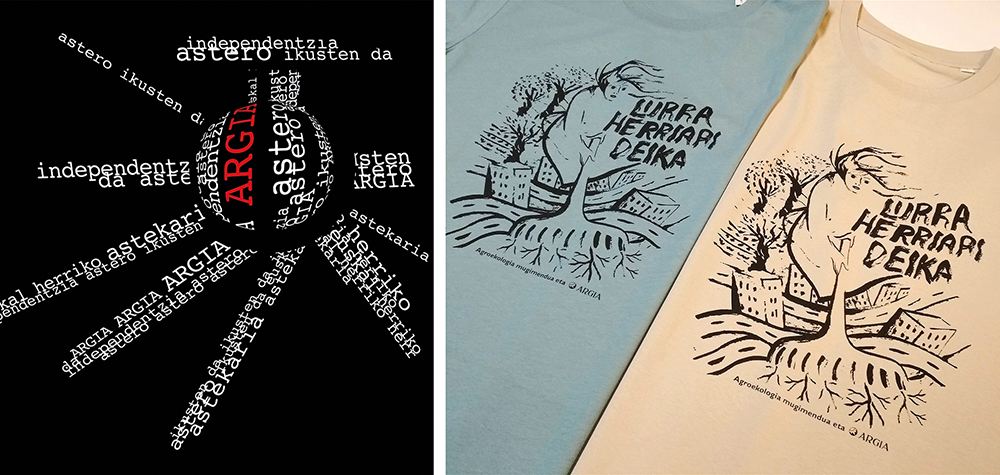"Do we have a strong project, are we doing it right, and are we asked for what we can't deliver?"
- You've fulfilled all the requirements to become a legal citizen (the concept is hard), you're quoting as an autonomous street vendor, and suddenly the administration tells you that if you don't pay more than you can earn, you'll be left without papers, you'll be condemned to flee to the police, you'll be returned to Africa. That's what they just did with the street vendors who migrated from Senegal. We have spoken to three of those who live in Bilbao.

With Baba Mbaye (35 years, 11 of them in Bilbao), Khadim Sambe (32 years, 7 in Bilbao) and Boubacar Diouf (47 years, two and a half in Bilbao). Mbolo Moye Doole, the association of billiard street merchants, about eight years and over 100 people, all Senegalese, some legal and others still not (until it is established that you have been living there for three years, for example, you cannot get papers; that is, during the first three years of your arrival yes or yes it is illegal). Many of them have ceased to be paperless mantars to become legal traders, but they have just been hit hard by the administration. Baba Mbay tells us: “In 2015 we got the license to work as a freelancer as a street vendor and we were given a residence permit for a year. After a year of social security contributions, they showed us this and renewed the residence permit for another two years. That was the treatment, and they asked us for a minimum quote of EUR 200, so that we could continue to live and work on it. But, from one day to the next, through the Spanish Aliens Act they have decided that they will not renew our papers without a minimum contribution of EUR 800, and we cannot reach that figure. In a few months we get EUR 200, in another EUR 250, we add taxes and invoices and account. In summer we took advantage of the people’s festivities to get some more money, but the minimum quote of EUR 800 is impossible for us.” What happens is that those who have set the standard know this well and, therefore, the objective is clear: “It’s nothing more than an expulsion strategy, because if not, why do they ask us for something, knowing that we will not be able to comply? We have a strong project, we're doing everything right, and why are they asking us more? In the background there is racism.” The change of approach affects more than 60 Senegalese who are currently sold on the streets of Bilbao with the license, and who are at risk of losing paper.
In other cities outside the CAV they are not required a minimum of EUR 800 to renew the permit. They interpret the law as flexible and do not ask for conditions as harsh as in Bilbao
The interviewees have told us that in other cities they do not ask merchants for a minimum of 800 euros to renew the residence permit, which suffices for them to pay social security contributions. They have told us about Pamplona, Barcelona, Valencia, Zaragoza, Cádiz, Seville, Granada… “But we are asked for 800, why is the Spanish law applied here and in other places not?”. We have asked the legal advisor of the association: in those other places they are interpreting the law as flexible and do not require such harsh conditions (in short, the fundamental obligation is to demonstrate that you have sufficient means to live in it), but the legal consultant met last week with the head of the Bilbao Foreign Office and the answer was very different: “He told me that the only thing he does is to apply the law and that it is not up to him to interpret; that to go talk to the politicians it is up to them, not to him.”
Again clandestine, terror and slavery Our interviewees
know very well what it is to live without papers, after all, they all have to survive this way for the first three years. The Administration now wishes to condemn this situation: “If they take away the papers, we will return to the beginning – they say – everything we have done will be of no use, we will return to the underground, to poverty, we cannot move or visit our country and our family and friends, we cannot do decent work. For those who are not engaged in street sales, working without papers means taking advantage of many businessmen and forcing them to practice slavery in conditions; and in our case it means moving from a street vendor to a mantero, always running and fleeing from the police, out of fear, because if they catch us without papers, they may take us to the ICN immigration center in Madrid, or throw us every day after so many years here. And living like this, that in the head, is terrible.”
The illegal sale on the street has also gone from a misdemeanor to a crime in the Spanish State, but in the CAV there is no intention to do so, because nobody is going to go into prison for selling. However, the alternative is not much more hopeful: if you are fined by the police, you will have a criminal record in the file and it is a lifelong trail, an obstacle to achieving any role: making it difficult to obtain a residence permit, facilitating eviction, or if you have a contract and criminal record, the government can get involved and can deny you the contract.
Everyone has experienced an incident with the police. Khadim Sambe was approached in the Sanfermines of Pamplona: “They said among them, ‘look at how nervous he is, he carries the drug on top.’ How wouldn't I feel restless? The arrival of the police is not nice, especially when your situation is wobbling”
“Counterfeit products are sold to us by big local merchants, why not chase them?” What you put on sale also has consequences, as it is forbidden to sell counterfeit products and the penalty
is lower or higher depending on the city. “We are in the spotlight – Mbay has criticised – but the counterfeit products we buy here, are sold to us by the big local traders here, because we do not have that strength or that capital to bring those products, why do they not persecute those big traders? Why do they do it against us?” It is also absurd to denounce that traders are the competition of small shops, when it is multinationals that are drowning small traders. In fact, manters sell counterfeits of major brands (Coco Channel, Adidas, Louis Boutton…) and it is foolish to think that sales of a set of manters can damage this type of brand. Manteros criticize that these same brands are fraudsters and that in poor countries (yes, in those countries of origin of sellers) people behave enslaving, in which double morality prevails: “Why attack the weakest instead of punishing those big fraudsters and those responsible for exploitative situations?”
Three friends say that
Bilbao is quite quiet on top of the Municipal Police. People who are sold on the street without a license are usually mostly in the Municipal Police, who are often told to take the place and leave, but can also be assigned agents who carry the products from which the mantere is sold. They say the situation is worse elsewhere, because you can end up in police station, but you also have to go to those places, have to go from town to town and from party to party, to get enough money. Boubacar Difou is not licensed yet and does not risk: “I don’t leave Bilbao, the day I get fingerprints will spoil me and I prefer to stay here so I don’t get the dossier dirty.” However, recently the police made him stay next to Plaza Unamuno in Bilbao, with a bag of goods on top: “The police asked me to show the bag and took me all the products.”
Everyone has experienced an incident with the police. Khadim Sambe was approached in the Sanfermines of Pamplona, and he had a very bad time: “They said among them, ‘look at how nervous he is, he carries the drug on top.’ How wouldn't I feel restless? The arrival of the police is not nice, especially when your situation is in danger.” Also at the Falces festivities he was arrested by the Civil Guard and for two years he had to go to a court to sign for selling CDs. He then had a trial in which he was asked for EUR 7,000, but since he does not have them, he has, in the end, had to do a 50-hour job for the government.
No, migrants who are fleeing poverty cannot find an easy life here either, our society does not open up to them, and that is why solidarity between them is so important. They have formed a strong community and help each other, especially when someone new comes. They say that in Euskal Herria in general people treat them well, but the xenophobic and fascist actions that are heard from time to time are frightening. “Politicians have a lot of responsibility – Mbay thinks – if they talk badly about immigrants, because then people think they are legitimized to attack immigrants.” Samb added that the blame for the crisis is often blamed, “and they are rage at us.” Behind these ideas is the “populist discourse, the discourse of many politicians and media”.
“The Aliens Act itself is discriminatory and racist, because it aims to leave people out, to push the black economy; that is hypocrisy, then they will say that we work in black when they give us no other choice.”
.jpg)
“Being an immigrant should not be a crime.” Instead
of hindering the acquisition of papers, give facilities. That is what they are asking for. “How many years people have been here and they can’t get any role – they’ve remembered. Being an immigrant should not be a crime, roles should not be a privilege, but a right for everyone, to be able to work, to be able to get out of poverty and secrecy.” They say that they will continue to fight for a dignified life, putting pressure on the streets to solve this problem, although they know that the question is deeper: “The Aliens Act itself is discriminatory and racist, because it aims to put obstacles, to leave people aside, to push the black economy; that is hypocrisy, then they will say that we work in black when they give us no other option. You won't see any Senegalese selling drugs or using violence to make money. We just sell on the street, what's wrong with it?"
They have been asked whether they hope that the quotation requirement of EUR 800 will be withdrawn from them. Yes, without hope there is no struggle. And how do you see the future? “The future is not clear. We have spent many years here and after so long we cannot return to our country without anything. Being legal and continuing to work is the future, saving and if the conditions are met to return to our country.”
.JPG)












